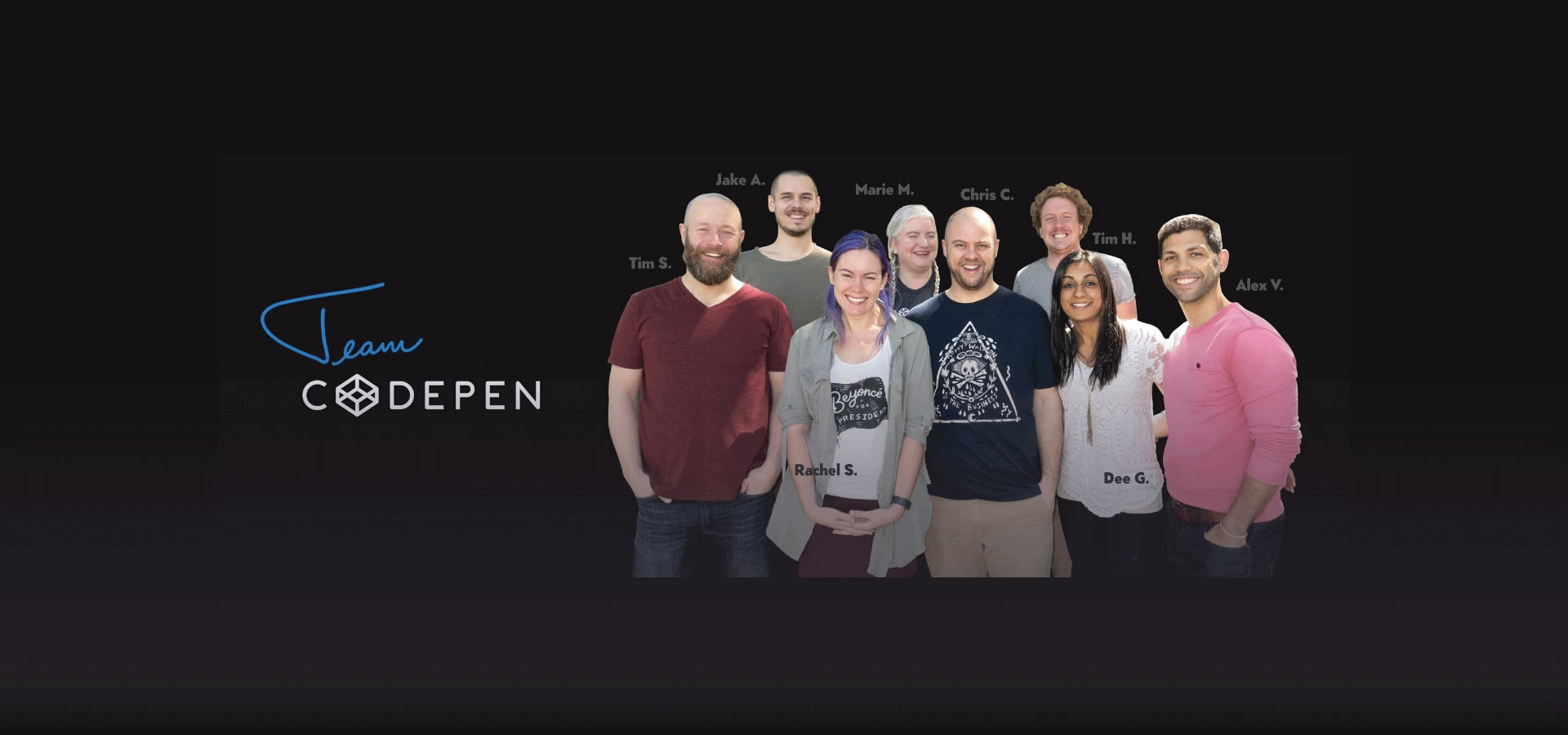Published on: January 27, 2017
7 min read
CodePen, welcome to GitLab!
Yes, it's worth it - CodePen has moved to GitLab!

We were so glad to hear that [CodePen] switched to GitLab!
Read through the ins and outs of their move! 😃
I'm a big fan of CodePen. Their product is awesome: it's intuitive, beautiful, works like a charm, and it's really easy to use. Their community's work is evolving – we could spend hours playing around with pens like this, [created][pen] by [Jase Smith]:
See the Pen Spock! Paper Scissors by Virtua Creative (@virtuacreative) on CodePen.
When I heard that they had switched to GitLab, I was thrilled! Yaaay! CodePen, welcome to GitLab!
They're very cool folks, and their [team][team] is making such an awesome product! They're also remote only, like us.
Listen to their podcast Codepen Radio - 114 - GitLab, which details why they moved and how it went. If you'd rather read, we've included some of the highlights below.
Highlights
7:45. They can't rely on a third-party service to deploy their code. Whenever there's downtime, there's nothing they can do about it. With a self-managed GitLab instance, they have the ability to exercise control over their server and everything else.
12.35. We have control, we have code in our own network, we have higher security.
They decided to go for [GitLab EE Starter][ee] for having certain great features available only on EE, such as Multiple Issue Boards, and fast-forward merge.
14:26. [GitLab EE] is not terribly expensive, and we're also supporting open source development.
16:34. Because this [CI] runs internally, and because we have access to our own VPC and resources inside of it, like Docker stuff, and AWS EFS stuff, we can actually take a step further and not just test our stuff, but grab it and deploy it.
16:58. In our case, [GitLab] give you tools to make Continuous Integration, Continuous Testing and Continuous Deployment really, really simple. And that, to me, is the biggest sell of them all. That's simply not available on GitHub.
They also enjoy not having to deploy from the command line, as it was impossible to track.
17:15. They love our [Pipelines][pipes], where the entire team can see what's going on and who's doing what. The steps are visible.
17:27. It's very clear, in GitLab, whether a build on staging has actually been pushed to production. So, if I'm going to deploy something to production, I can very easily see who has moved that into master since the last production deploy.
They also love the [rollback] button: no pain, all gain. Now it's easy to roll back changes.
19:18. I feel more comfortable, for sure.
23:37. Whatever we want to do, we can do, and we're not bound by someone else's Continuous Deployment setup.
26:40. They appreciate having the [Issue Boards], [Todos], and [Time Tracking][tt] in one single platform, tied together with their code.
28:07. Let's start looking at all of the things that are required to go into a feature and all, and assign them priorities, and people, and milestones, and time estimates, and stuff, and it feels like a really grown-up management of a thing, and it's pretty interesting!
29:10. They mentioned how cool it is to perform a [slash command][slash] to add how long it's going to take to complete the implementation of a feature, right from an issue comment.
29:50. We are, as a group, sick of not having an understanding of how long it's going to take to complete a feature or whatever. If we use [[Time Tracking][tt]], we'll know, or we'll be a lot closer to it! And further, we're going to be more accurate on what those time estimates are going to be, and we can plan around that, and not feel so wishy-washy about these big important things that we're doing. So we get that! That comes in the GitLab package as well, so it's kind of like we replaced GitHub, Codeship and Trello with one open source tool! This feels kind of cool!
31:24. This is biggest warning I have for everyone: read the [documentation][docs]!
With [GitLab Importer][importer], you can just import your projects from GitHub directly from the UI, which means pushing a button.
31:45. It's just a button, essentially. You just have to give access to your GitHub account via keys, and once you've done that, GitLab will actually pull in all of your repos, and say "Which ones do you want to import?" and you just go "import", "import", "import"...
At 33:44 they also mention burndown charts, and there is an issue for that with a lot of traction.
34:03. My final feeling about GitLab is it's incredibly impressive work. Like, holy crap, this is really good software! High five team! 🙌
GitLab Version
CodePen is using [GitLab EE Starter][ee], self-managed on AWS together with all their structure.
Cover image: screenshot of About CodePen.
[ci]: /solutions/continuous-integration/ [Codepen]: https://codepen.io/ [docs]: https://docs.gitlab.com/ [ee]: /pricing/ "GitLab Enterprise Edition" [ff]: https://docs.gitlab.com/ee/user/project/merge_requests/methods/index.html [importer]: https://docs.gitlab.com/ee/user/project/import/github.html [Issue Boards]: https://docs.gitlab.com/ee/user/project/issue_board.html [jase smith]: https://codepen.io/jasesmith/ [pen]: https://codepen.io/jasesmith/pen/GqaVrx [pipes]: https://docs.gitlab.com/ee/ci/pipelines/index.html [remote-only]: https://handbook.gitlab.com/handbook/company/culture/ [rollback]: https://docs.gitlab.com/ee/ci/environments/index.html#viewing-the-deployment-history-of-an-environment [slash]: https://docs.gitlab.com/ee/user/project/quick_actions.html [squash]: https://gitlab.com/gitlab-org/gitlab-ee/issues/150 [team]: https://codepen.io/about/ [todos]: https://docs.gitlab.com/ee/user/todos.html [tt]: https://docs.gitlab.com/ee/user/project/time_tracking.html
We want to hear from you
Enjoyed reading this blog post or have questions or feedback? Share your thoughts by creating a new topic in the GitLab community forum.
Share your feedback
